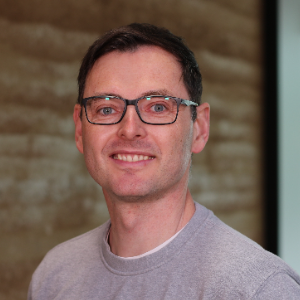WG Proximal soil sensing
On many farms, the smallest management unit is conventionally the field. There, measures of fertilization, tillage or harvest are usually performed uniformly. However, within a field, a high spatial variability in soil properties can exist due to the underlying geology or landuse history of the site. A uniform management such as fertilization then leads to an over-fertilization of one part of the field which results in a waste of resources and environmental pollution. On other parts of the field, on the other hand, the yield potential is still not exploited. Particularly against the background of an ever stricter fertilizer ordinance, site-specific management enables the application doses to be specifically adapted to these small-scale differences in demand. Therefore, however, a high-resolution mapping of the spatial variability of soil characteristics is important. This high resolution of soil data cannot be achieved through costly and time-consuming laboratory analyzes alone. Soil mapping with sensors is a comparatively quick and cost-efficient alternative.
The working group “Proximal soil sensing” studies, develops and tests various sensor technologies regarding their applicability for mapping physical and chemical soil properties. Thereby, soil science, agronomics and engineering science work closely together.
The approaches used include:
- Geoelectrics (ECa),
- Geomagnetic (EMI),
- Ion-selective electrodes (e.g. pH, NO3–, NH4+, K+),
- Optical spectroscopy in the visual, near infrared and mid infrared range (visNIRS, MIRS),
- Terahertz spectroscopy (THz),
- X-ray fluorescence spectroscopy (XRF),
- laser-induced breakdown spectroscopy (LIBS),
- Gamma spectroscopy,
- Penetration resistance.
The development of these technologies for soil mapping is quite different. Some systems have not yet been tested on soil as a medium. Others are still partly laboratory-based or, as handheld devices or on mobile platforms, are already suitable for stop-and-go or on-the-go use in the field. An important goal is the fusion and integration of several sensor systems on mobile multi-sensor platforms which allow a simultaneous measurement of multiple yield-relevant soil properties with only one pass. For the evaluation of the resulting large amounts of data generated in this process, we work closely with the ATB junior research group “Data Science in Agriculture”. In order to be able to record subsoil properties, we furthermore develop a system for sensor-based soil profile measurements.
By combining the high-resolution soil data obtained in this working group with crop data from the “Precise Crop Monitoring” working group, it is also possible to examine the yield effects of individual soil properties on specific crops in more detail. In interaction, sensor-based soil mapping makes an important contribution to digital, resource-saving and yield-optimized precision agriculture.

